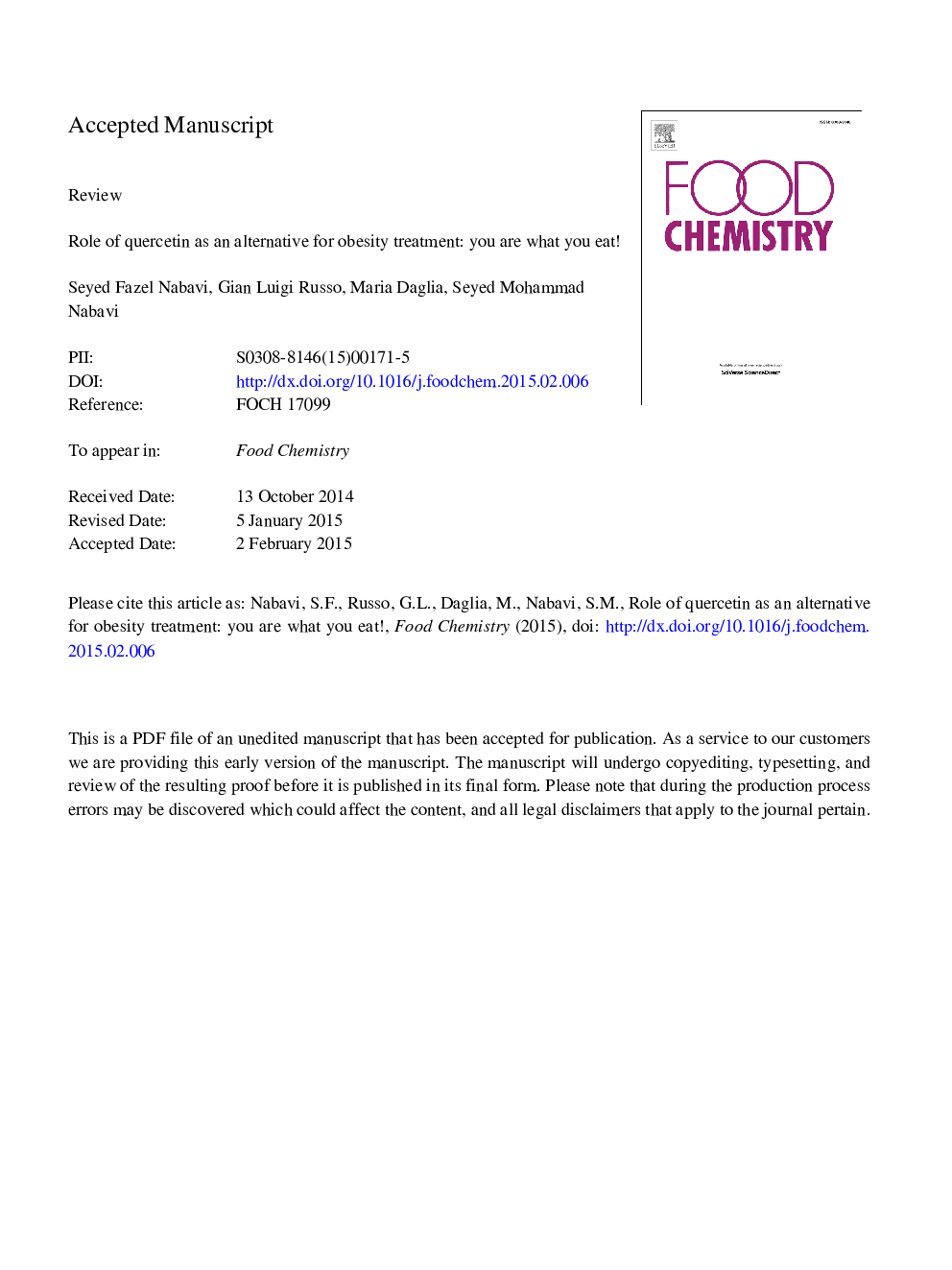| Article ID | Journal | Published Year | Pages | File Type |
|---|---|---|---|---|
| 7592128 | Food Chemistry | 2015 | 32 Pages |
Abstract
Obesity is one of the most serious global health problems, which increases the risk of other different chronic diseases. The crucial role of oxidative stress in the initiation and progression of obesity leads to the hypothesis that antioxidants can be used as therapeutic agents for obesity treatment. Among antioxidants, much attention has been paid to polyphenols due to their negligible adverse effects. Among them, quercetin is one of the most common dietary antioxidants widely distributed in different plant materials, such as fruits, vegetables and cereals. Quercetin shows a wide range of biological and health-promoting effects, such as anticancer, hepatoprotective, antidiabetic, anti-inflammatory and antibacterial activities. Furthermore, quercetin has anti-obesity activity through mitogen-activated protein kinase and adenine monophosphate-activated protein kinase signaling pathways. In this study, we reviewed the available scientific reports concerning the beneficial role of quercetin against obesity with emphasis on its mechanisms of action.
Related Topics
Physical Sciences and Engineering
Chemistry
Analytical Chemistry
Authors
Seyed Fazel Nabavi, Gian Luigi Russo, Maria Daglia, Seyed Mohammad Nabavi,
